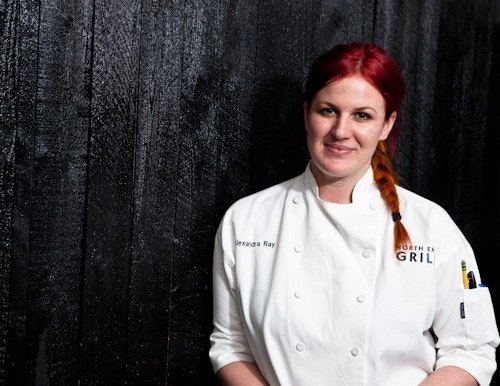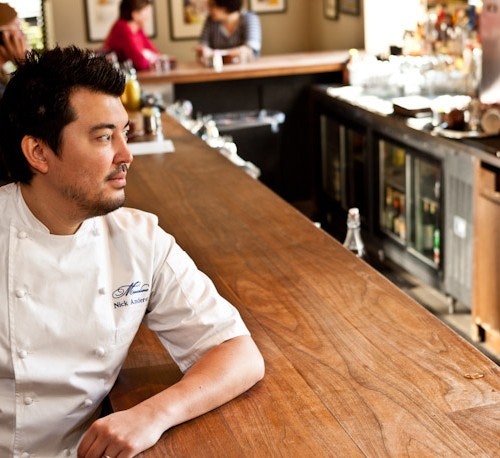NEW YORK CHEFS ANSWER ‘WHAT HAS COOKING TAUGHT YOU?’
Interviewing chefs is a curious beast. We do a great amount of research in preparation, so that the chef’s most basic or most publicized bits of history are understood before we come up with questions of our own. Each restaurant has its own energy, and depending on the day we might meet someone extremely focused and calm or a bit of frustrated angst at being taken from what they commit to most fully; the beautiful and arduous task of making food for our critical New York audience.
And oftentimes we sit in fascinating conversation full of soul, and the thoughts and opinions expressed to us help us shape what we understand of the food being made in New York right now. So while we continue with this series, we’ve compiled a few outtakes from the past six months of We Chat With interviews. In most of them, we’ve ended a lingering conversation with, “What has cooking taught you about yourself that you’ve had to overcome?”
Daniel Boulud: Train the Next Generation
Wolfgang Ban: How to Get Back to Nature
Lauren Resler: Maintain Order, Stand Your Ground
Jonathan Benno: Never Be Complacent
Hung Huynh: Share Passion Through Food
Carmen Quagliata: Hospitality Matters
What has being a chef taught you about yourself that you’ve had to overcome?
Danny Meyer has never taught me anything about cooking, but his philosophy and the things I’ve learned and overcome about my own personality and leadership style have done more for my food than I ever imagined. Let’s just face it, it’s a different environment, and the immediacy that you have to get better at something right now could make or break someone’s dinner. Or you have the slightest alteration in doing right or wrong—you could do it 5% differently but that could exponentially change how the guest enjoys their meal. And those are hard things and hard lessons for people to learn, but there’s a way to do it without demeaning people.
Most chefs my age would agree that we’ve come up in kitchens where you kept going and didn’t worry about how it made you feel. But there is a way to have people feel great—not only about being around food but about where they’re working and the chef they’re working for—by doing it respectfully. It doesn’t mean we don’t hold them accountable or that it has to happen quickly with intensity, but there’s a way to do it without scarring someone’s soul. And that was my biggest challenge here. And I think believing that and knowing that’s some place I wanted to be and do, given to me by Danny’s culture, or by the culture that they established here, definitely has made my career better and longer than it would have been.
Sue Torres: Go with the Changes
Chef Victor LaPlaca: How to Engage Others
Alexandra Ray: ‘You Have to be on Top of Your Shit!’
What has being a chef taught you about yourself?
I’m a big procrastinator. I think I have ADD. I think I need to solve things the moment that they happen, and I think that’s kind of counter-intuitive to my nature. And even in terms of staff you need to solve or fix things right away before you forget it and it keeps happening. I think managing a staff is really difficult—that’s been one of the most interesting challenges that I’ve had. I’m a very fun, carefree kind of person, and I think you need to be more assertive in your role as a leader and a mentor. And that’s a big challenge for me because I want to be everyone’s friend. And to write things down—write recipes down while you’re working on them in one spot. I lose recipes all the time. You have to be on top of your shit!
Masaharu Morimoto: How to Do Good by Mom
Thiago Silva: Cooking Has Endless Rewards
Nick Anderer: All Italians are ‘Foodies’
You’re not Italian—what do you most strongly connect with in regards to Italian food culture?
Everybody throws around that word “foodie,” and that word doesn’t exist in Italy. Because if you had to define it for an Italian person, “Oh, it’s someone who’s passionate, always thinking about food and wine and what their next meal’s gonna be,” an Italian would be like, “Well, that’s everybody.” That’s a culture that’s just there, it doesn’t need to be defined or separated from it. So that’s something I appreciated with while I was there and related to.
(ORIGINAL ARTICLE)
Lesson on Cooking

